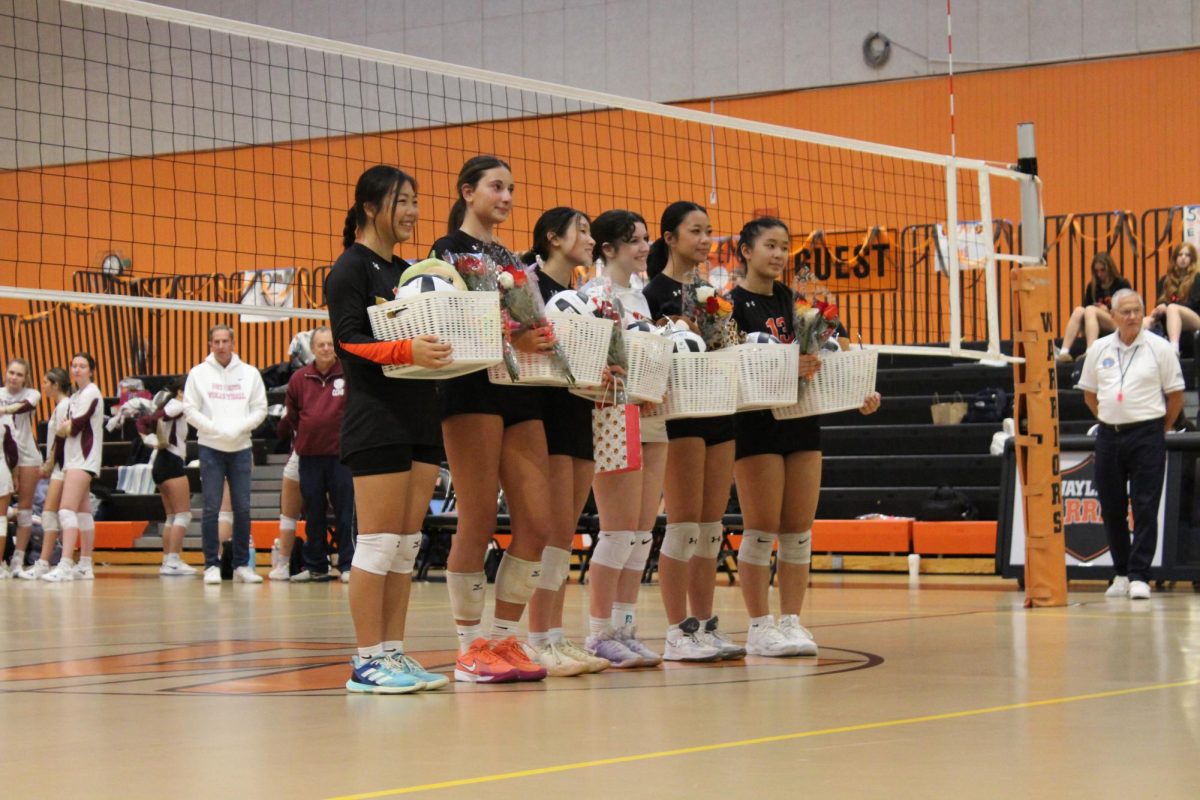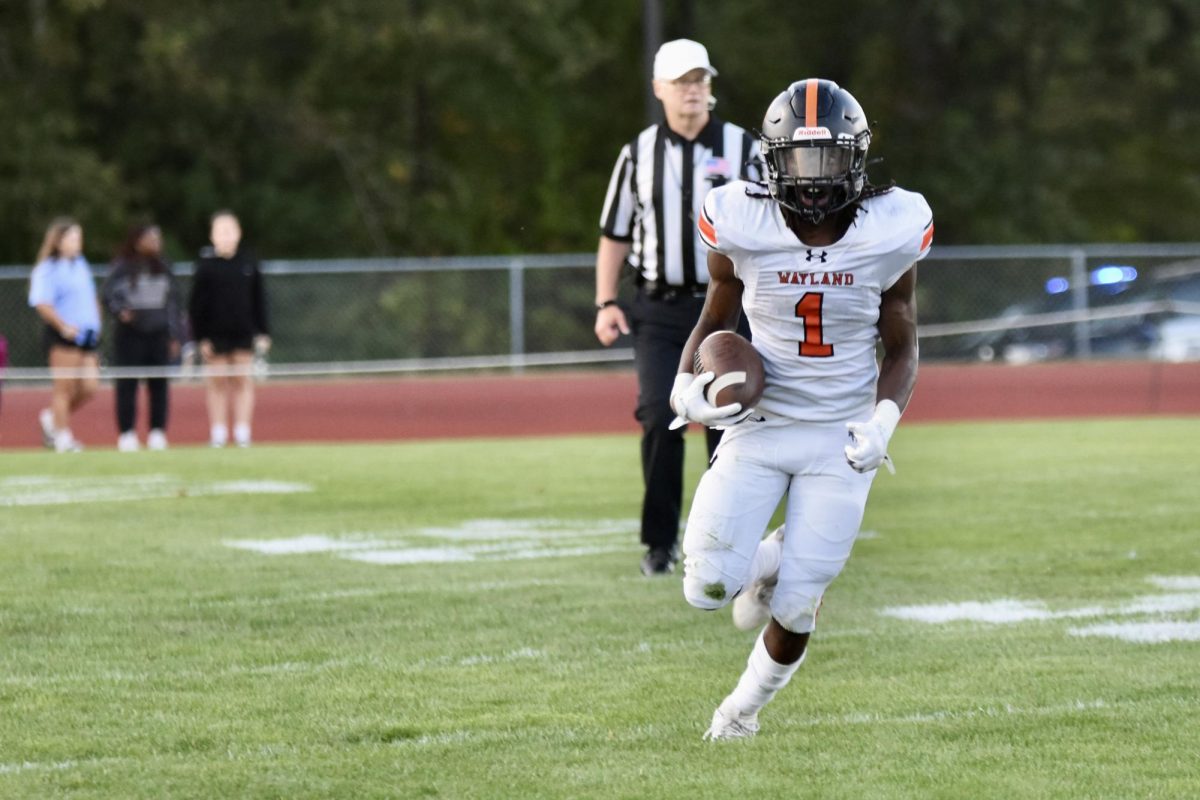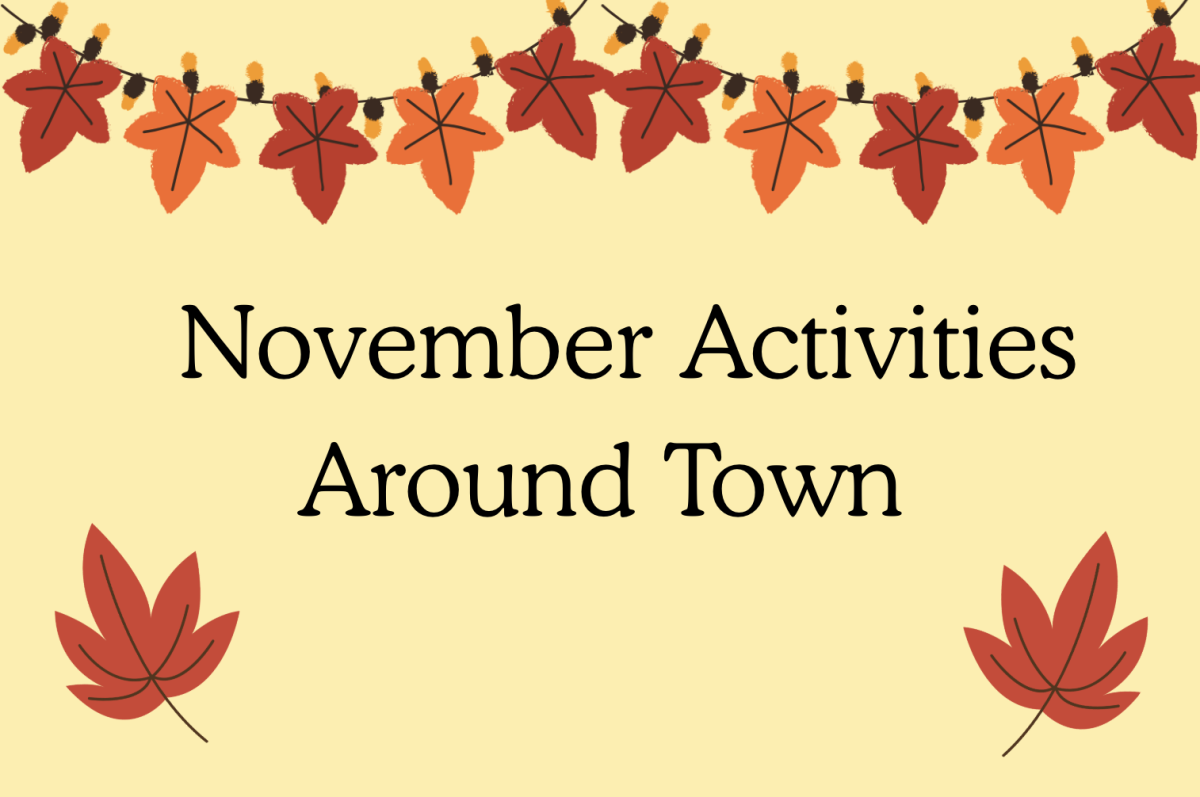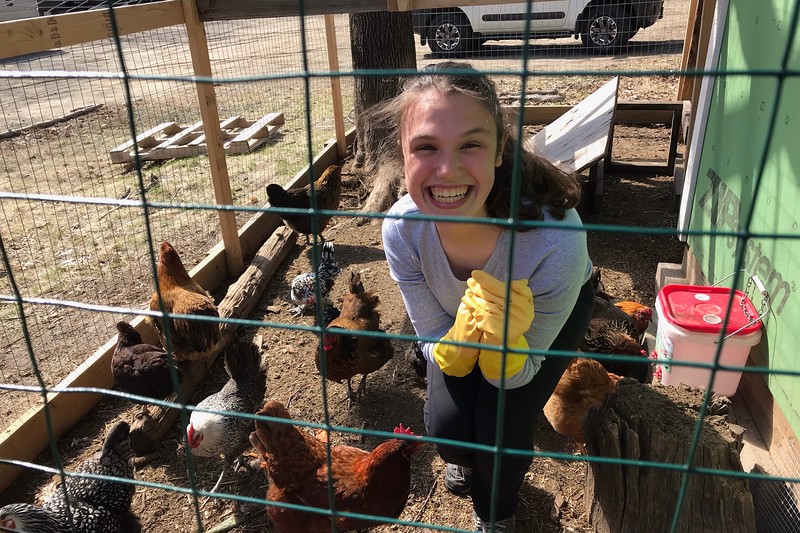Lara Bencsics: “I wanted to help animals and see how a real life farm works”
Credit: Courtesy of Lara Bencsics
Sophomore Lara Benciscs feeds the chickens at the farm at Land Sake in Weston, MA. Since November, Benciscs has been going every Saturday as an volunteer. “Find a place near you that supports animals and reach out to them,” Bencsics said.
April 13, 2019
For students at WHS to be able to get their privileges in junior and senior year, they have to complete a certain number of volunteer hours. For many, volunteering is only about reaching this goal, but for sophomore Lara Bencsics, giving back to the community means much more. To her, helping with animals and farms is not only a satisfying endeavor but also a learning experience.
About a year after watching many zoo televisions shows and visiting multiple zoos, Bencsics knew that she wanted to be a veterinarian. In the months following, she participated in many farm camps and started to volunteer more. She has continuously been a volunteer at a farm called Land Sake in Weston every Saturday for the past three months.
“I pour the food to about halfway in the chicken feeder and then there are two waters in the pen, so I take out the waters and then depending on how I feel, sometimes I like to sit with the chickens and hang out with them,” Bencsics said.
Spending a half an hour with the chickens every Saturday has brought Bencsics close to the animals and caused her to have more consideration for them.
“I’ve gotten really close to the chickens, so I like working with them,” Bencsics said.
Bencsics has also spent time volunteering at Drumlin Farms, where last weekend they had a Woolapalooza, an event revolving around shearing the sheep. She not only helped with the animals but also spent time educating kids.
“We get to teach kids about pooling wool to make it into yarn,” Bencsics said.
Farm animals aren’t the normal animals that people like to help and be around. Many spend time with dogs or cats, the normal household pet, but Bencsics believes that it is crucial to help and understand farm animals as well.
“[Farm animals] are really cool animals and it’s important to make sure that they are healthy too,” Bencsics said.
These volunteer opportunities have helped Bencsics learn a lot about animals in general and about working closely with them.
“You learn a lot about the process, especially at Drumlin,” Bencsics said. “I was able to look at the farmers working and how they deal with the animals and what they do to make the animals as comfortable as possible. With the chickens, I’ve learned to observe how they act, and how the animal moves, which is important to know how to treat them.”
In the future, Bencsics aspires to be a vet, and she wants as much as experience with animals as possible. Her goals include learning more about the anatomy of animals.
“I want to be able to work more on the medical side and see what vets do. Another one of my goals is to try to work with different animals,” Bencsics said.
Bencsics recently applied for a camp at Tufts University called Adventures in Veterinary Medicine. If she gets accepted, she will attend for two weeks over the summer. Part of this camp includes following around fourth-year veterinary students, exploring veterinary specialty fields, and making a lot of contact with different animals.
“I’m applying to try and get more work with animals,” Bencsics said.
Bencsics has shown enthusiasm about programs like this in the past by attending camps at Drumlin Farm. Since she has so much passion for animals, she participates whenever she can. She went to her last camp during February break.
“It’s more like working with animals,” Bencsics said of her camp experience. “It wasn’t like volunteering – you worked more with sheep and goats.”
Bencsics has attended mainly all of these camps on her own. However, she wasn’t concerned about this fact because she has such a love for helping animals. Moreover, Bencsics has had some help feeding the chickens from her mom.
“My mom comes and volunteers with me, which is kind of a fun bonding time,” Bencsics said.
Throughout this entirety of volunteering and camps, Bencsics has learned a lot about animals, which has only encouraged her to push herself to acquire more information.
“The biggest thing that I learned is that all animals are different and there are different ways to treat them,” Bencsics said. “But working with them is really important because, with humans, you can talk to them, but with animals, you can’t. So properly caring for them is really important.”



























